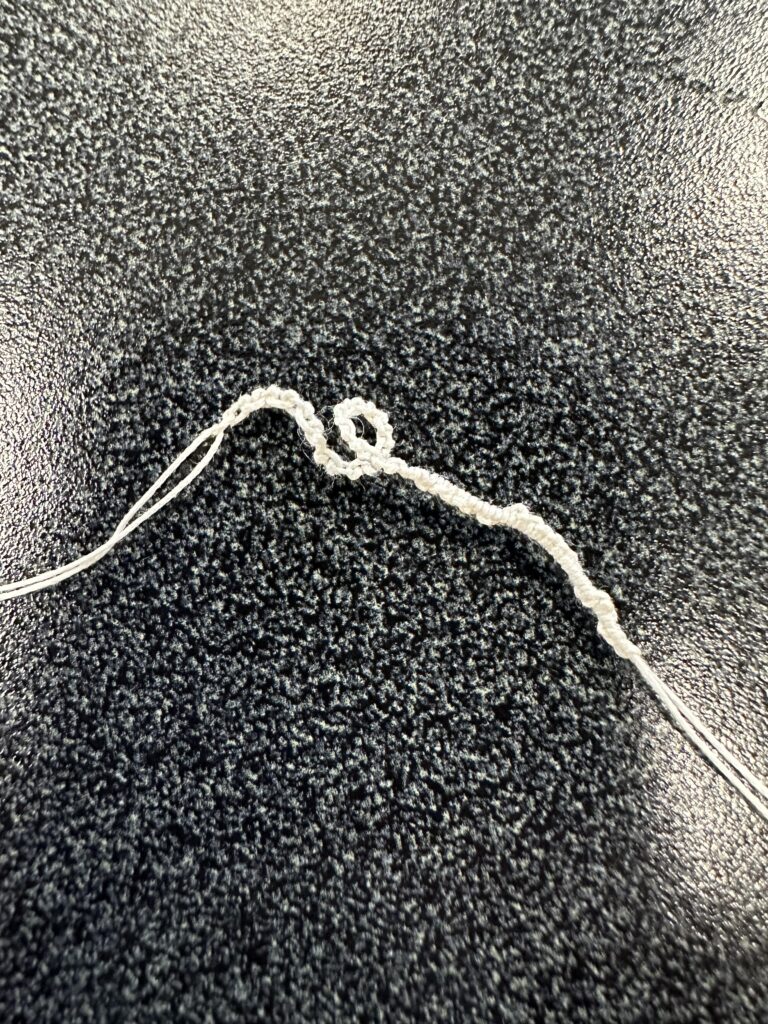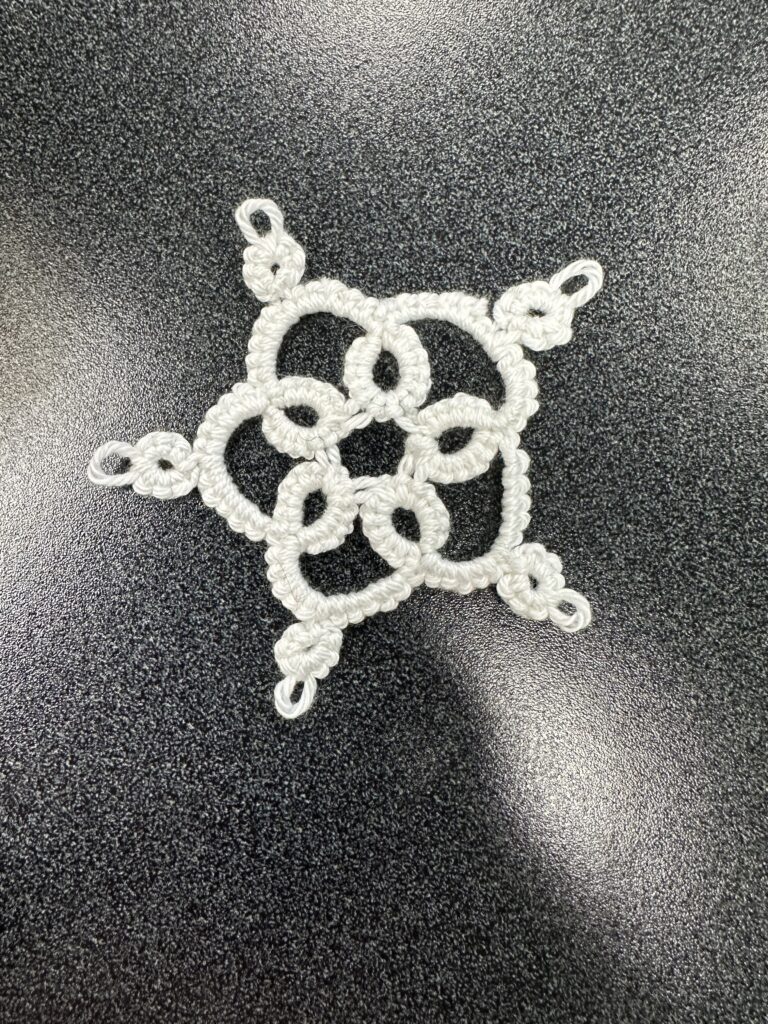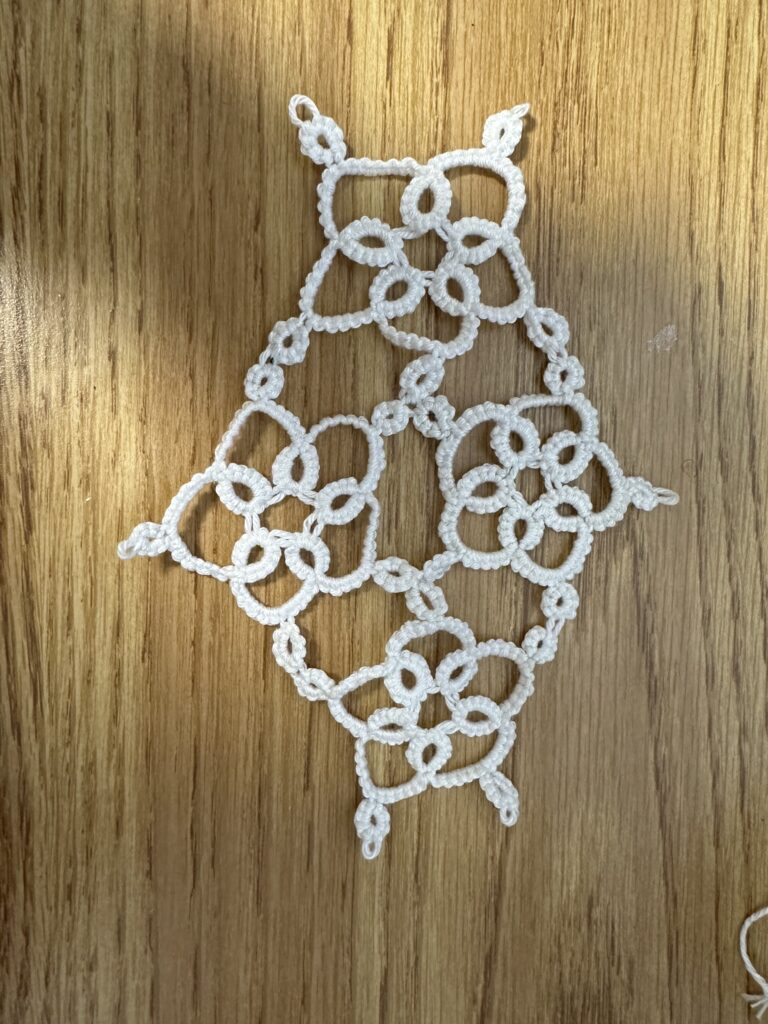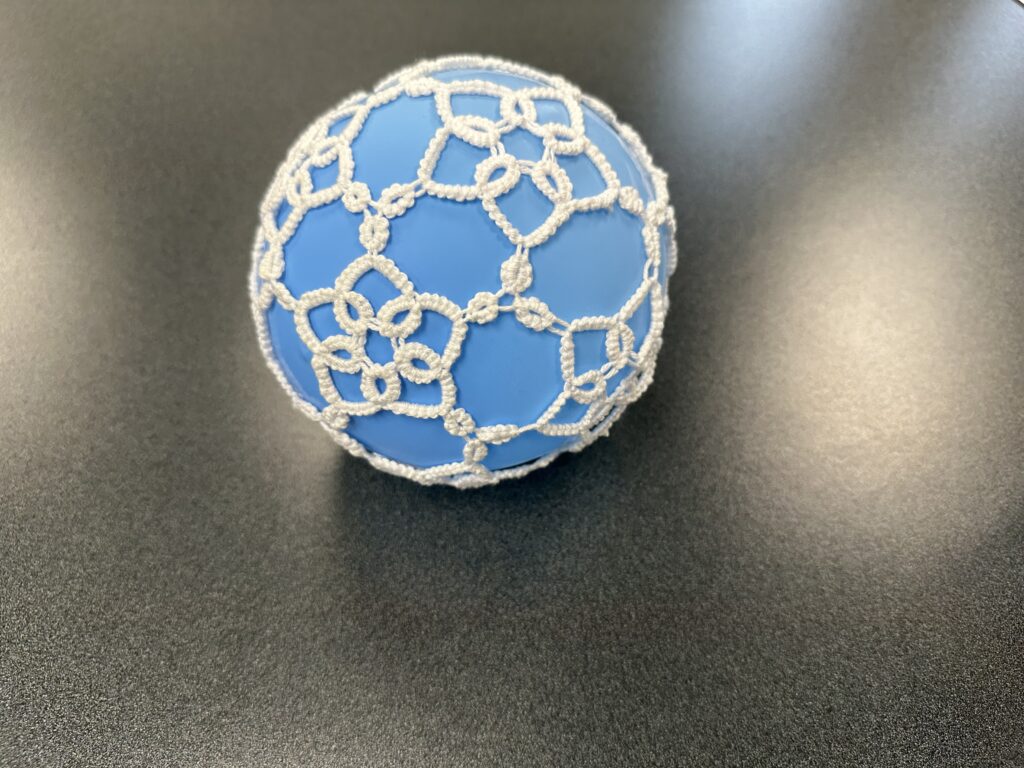Platonic solids are shapes “whose faces are all identical, regular polygons meeting at the same three-dimensional angles” (Britannica).
For this project I decided to explore making Platonic solids using tatting. Tatting is a way to make lace by repeatedly tying two strings into knots.
At first I learned how to make chains and rings. I experimented with different types of thread. The first type of thread I used was too small. It was difficult to see what I was doing and remove any mistakes I made.

I then decided to try using a wool yarn, since it is thicker. I was able to successfully create a tatted motif!
However the different threads of the yarn kept separating and the yarn was pilling and sticking together. For my final project I decided to use an acrylic yarn. This yarn was thick enough that I could easily see what I was doing and remove mistakes. The acrylic also didn’t pill or stick together like the wool.
Tatting is very intricate and time consuming so I was only able to focus on making a dodecahedron. I found this pattern online that walked me through the process. I started by making a flower motif that had 5 rings on the outside. These rings end up acting as the vertices on the dodecahedron, while the whole motif acts as a face.

Then I repeated the motif 11 more times, attaching each one as I went. Here is a photo from when I had competed the motif four times.

Then I inflated a balloon inside the dodecahedron. This helped the lace hold its shape.

The resulting shape ended up more like a sphere, because the different faces don’t stay flat. Depending on how you define the different faces the lace is either a dodecahedron or a truncated icosahedron.
Leave a Reply